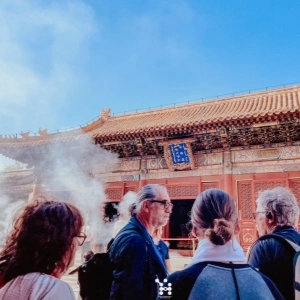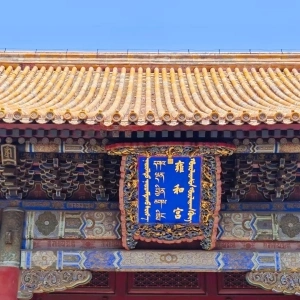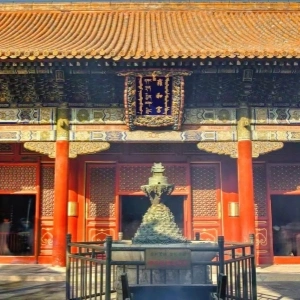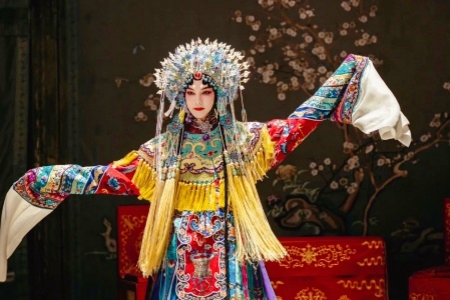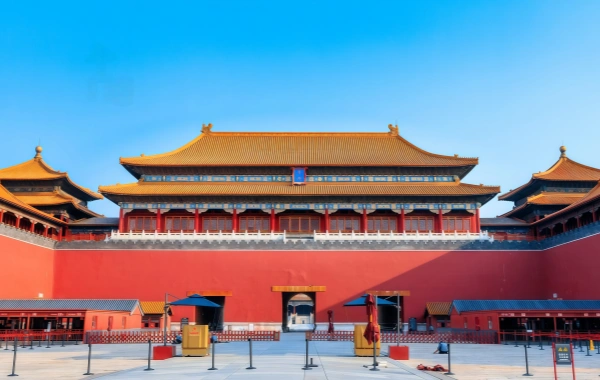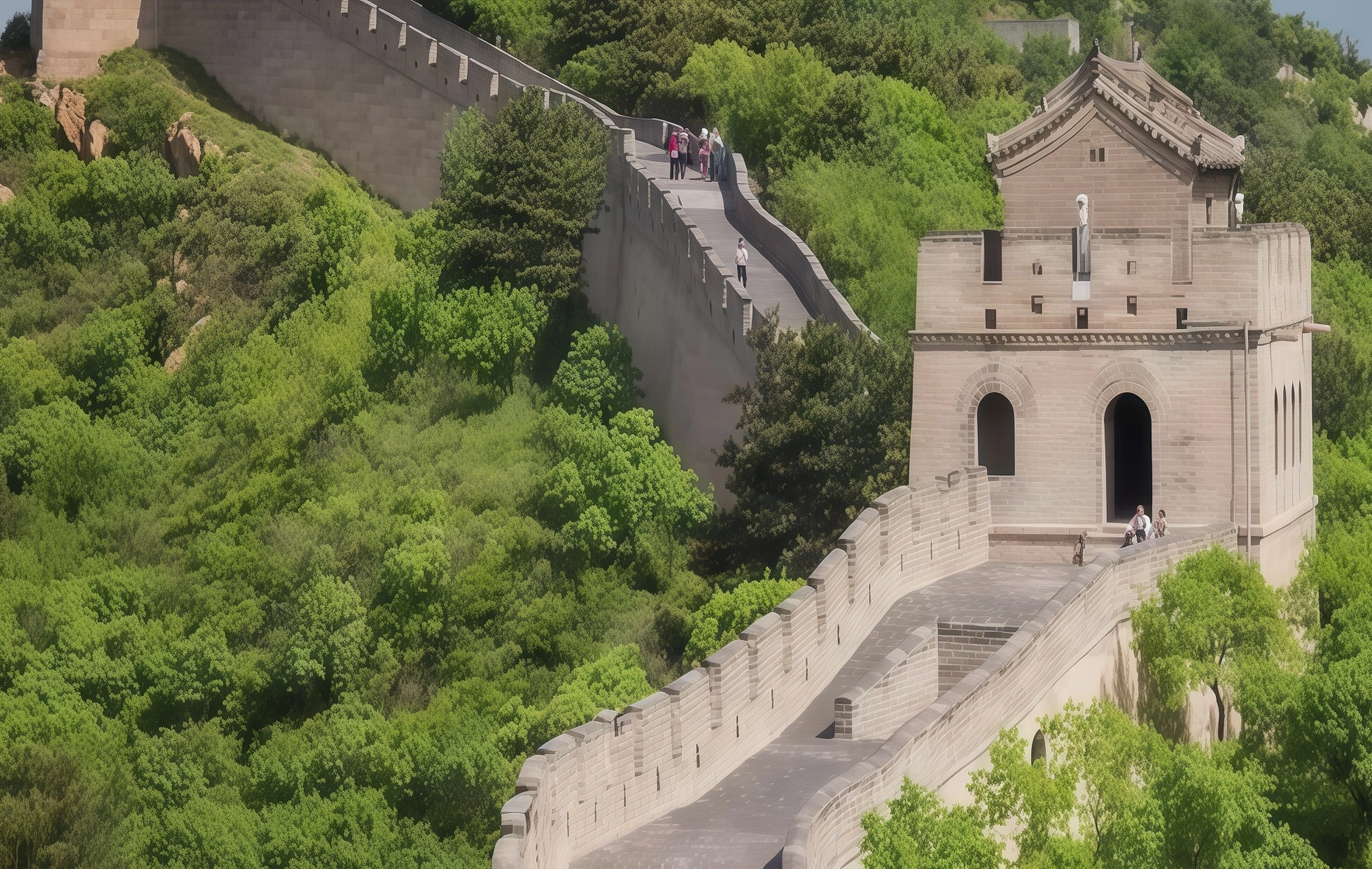Located in the heart of China, Gansu is a province that offers a unique blend of natural beauty, rich cultural heritage, and historical significance. From the ancient Silk Road to its stunning landscapes of mountains, deserts, and rivers, Gansu provides travelers with a chance to explore both China’s past and its natural wonders. Known for its diverse ethnic communities, Gansu is a melting pot of cultures, with traditions that date back thousands of years. Whether you're looking for historical landmarks, breathtaking natural scenery, or cultural experiences, Gansu is a hidden gem waiting to be discovered.
More about Gansu travel guides and itineraries, please contact us.
1. Why Visit Gansu?
Gansu is a land of contrasts, where ancient history meets natural beauty. It is a region that offers both adventure and cultural exploration, perfect for travelers who are looking to immerse themselves in the heart of China.
● Historical Significance: Gansu was a key region along the ancient Silk Road, and its cities are home to a number of historical sites that trace the region’s role in Chinese and world history.
● Breathtaking Landscapes: From the vast Gobi Desert to the lush valleys of the Hexi Corridor, Gansu's landscape is diverse and awe-inspiring. The province offers a wealth of natural beauty, from the Danxia landforms to the scenic Yellow River.
● Cultural Diversity: Gansu is home to a wide array of ethnic groups, including the Hui, Tibetan, and Kazakh peoples. This cultural diversity is reflected in the region’s food, traditions, festivals, and architecture.
2. History & Culture
Gansu’s rich cultural heritage is deeply intertwined with its geographical location. As a vital part of the Silk Road, Gansu served as a crossroads for different cultures, religions, and ideas, making it a fascinating destination for history enthusiasts.
● Silk Road Legacy: The province was an important gateway for traders traveling between China and Central Asia, and its cities like Dunhuang and Zhangye became melting pots of culture, art, and commerce.
● Buddhism & Religion: Gansu is home to some of China’s most impressive Buddhist sites, including the Mogao Caves in Dunhuang, which contain some of the finest examples of Buddhist art and sculpture.
● Ethnic Cultures: The province is home to a rich tapestry of ethnic minorities, including the Hui Muslims, Tibetans, and Kazakhs. Visitors can explore the unique customs, languages, and traditions that each group contributes to the cultural landscape of Gansu.
More silk road tour:
Xi'an to Dunhuang Silk Road Tour
Legendary Silk Road Tour from Beijing
3. Top Attractions
Gansu’s attractions are a mix of historical landmarks, cultural treasures, and natural wonders. Here are some of the top places to visit in the province:
● Mogao Caves (Dunhuang): This UNESCO World Heritage site is one of the most important Buddhist cave complexes in the world, with thousands of murals, sculptures, and manuscripts dating back to the 4th century.
● Zhangye Danxia National Geological Park: Known for its colorful, multi-hued mountains, the Danxia landforms in Zhangye are one of China’s most spectacular natural wonders and are often referred to as the “Rainbow Mountains.”
● Lanzhou: The capital city of Gansu, Lanzhou is famous for its stunning views of the Yellow River, as well as its rich history and modern development. The city is also renowned for its hand-pulled noodles, Lanzhou beef noodles being a popular local dish.
● Qilian Mountains: A perfect destination for outdoor enthusiasts, the Qilian Mountains offer stunning alpine landscapes, hiking trails, and a chance to explore the wild beauty of northern Gansu.
● Liangzhou Ancient City (Wuwei): The ancient city of Liangzhou, once an important stop along the Silk Road, is known for its historical sites, including the Confucius Temple and the Thousand Buddha Caves.
4. Local Experiences
To truly experience Gansu, it’s important to immerse yourself in its local traditions, food, and culture. Here are some of the best ways to explore the province:
● Silk Road Exploration: Follow in the footsteps of ancient traders by visiting the Silk Road towns of Dunhuang, Zhangye, and Jiayuguan. Along the way, explore ancient ruins, temples, and cultural sites that highlight Gansu’s role in the exchange of goods and ideas.
● Uyghur and Hui Cuisine: Gansu's food culture is influenced by its diverse ethnic groups, and visitors can enjoy dishes like hand-pulled noodles (lamian), Hui-style lamb skewers, Uyghur bread, and various lamb and noodle soups.
● Traditional Festivals: Gansu is home to a number of vibrant ethnic festivals, including the Tibetan New Year, the Gansu Hui Muslim festival, and the Dunhuang Music Festival, where visitors can experience traditional dance, music, and local customs.
● Horseback Riding: Gansu’s rugged landscape makes it ideal for horseback riding, especially in areas like the Qilian Mountains and the grasslands of the Hexi Corridor. These adventures offer a unique way to experience the province’s natural beauty.
5. Practical Travel Tips
Gansu is an exciting destination for travelers, but there are a few practical considerations to keep in mind when planning your visit.
● Best Time to Visit: The best time to visit Gansu is during the spring and autumn months (April to October) when the weather is mild and pleasant. The summer months can be hot, particularly in the desert regions, while winter can be cold and snowy, especially in higher altitudes.
● Getting Around: Gansu has a well-developed transportation network, with buses, trains, and domestic flights connecting the province’s major cities. For more remote regions, like the Qilian Mountains or Dunhuang, it’s advisable to hire a local guide or take a tour.
● Altitude Considerations: Some parts of Gansu, particularly in the Qilian Mountains and around the Tibetan Plateau, are at high altitudes. Be sure to acclimatize gradually to avoid altitude sickness, especially if you plan to visit areas like Dunhuang or the Tibetan-influenced regions of the province.
6. Travel Themes & Inspirations
Gansu offers a variety of travel experiences depending on your interests:
● Historical & Cultural Exploration: For history buffs, Gansu is a treasure trove of Silk Road relics, ancient temples, and Buddhist art. Explore the Mogao Caves, the Jiayuguan Fortress, and the ancient city of Wuwei for a deeper understanding of Gansu’s role in Chinese and world history.
● Nature & Adventure: From the desert dunes of the Gobi to the lush valleys of the Qilian Mountains, Gansu is a paradise for outdoor enthusiasts. Hiking, camping, and exploring nature reserves are some of the best ways to enjoy the province’s diverse landscapes.
● Spiritual Retreat: With its Buddhist heritage, Gansu offers opportunities for spiritual reflection. The Mogao Caves and other monasteries provide a peaceful atmosphere for meditation and contemplation.
7. Instagram-Worthy Spots
● Mogao Caves: The ancient murals and statues, along with the scenic desert landscapes, make the Mogao Caves one of the most photogenic places in Gansu.
● Zhangye Danxia Landforms: The vibrant, rainbow-colored mountains are one of the most popular spots for photographers looking to capture China’s natural beauty.
● Yellow River: Lanzhou, with its dramatic views of the Yellow River, provides plenty of opportunities for stunning riverfront photos, especially at sunset.
8. Shopping & Souvenirs
● Silk Road Handicrafts: Gansu is a great place to pick up traditional Silk Road-inspired souvenirs, such as carpets, pottery, and colorful textiles.
● Buddhist Art: Thangka paintings, statues, and prayer wheels from the region’s monasteries make for meaningful cultural keepsakes.
● Local Food: Take home some Gansu specialty foods, including hand-pulled noodles, dried fruits, or locally produced tea.
9. Stays & Cuisine
● Accommodation: Gansu offers a wide range of accommodations, from budget hostels to more luxurious hotels. Lanzhou and Dunhuang have some of the best options for high-end stays, while smaller towns provide guesthouses and local inns.
● Cuisine: Gansu’s food is deeply influenced by the province's diverse ethnic groups. The famous Lanzhou beef noodles, Uyghur-style pilaf, and Hui-style lamb dishes are must-try local delicacies.
10. Beyond the City
● Jiayuguan: Explore the Jiayuguan Fortress, the westernmost point of the Great Wall of China, and the nearby Dunhuang oasis, which was once an important Silk Road stop.
● Tibetan Culture: The Tibetan-influenced regions in Gansu, such as the area around Xiahe, offer visitors the chance to explore Tibetan monasteries and experience traditional Tibetan culture.
● Gobi Desert: The Gobi Desert, which stretches into the western part of Gansu, offers opportunities for desert trekking and adventure travel in one of the world’s most remote and beautiful landscapes.
Gansu is a province that captivates the imagination and offers something for every type of traveler. With its historical landmarks, stunning natural beauty, and diverse cultures, it’s an ideal destination for anyone seeking a deeper understanding of China’s rich heritage.
Related Posts
Create Your Customized Trip
Take about 2 minutes to fill the form to tell us how you like to travel, and get a reply within 1 working day.




